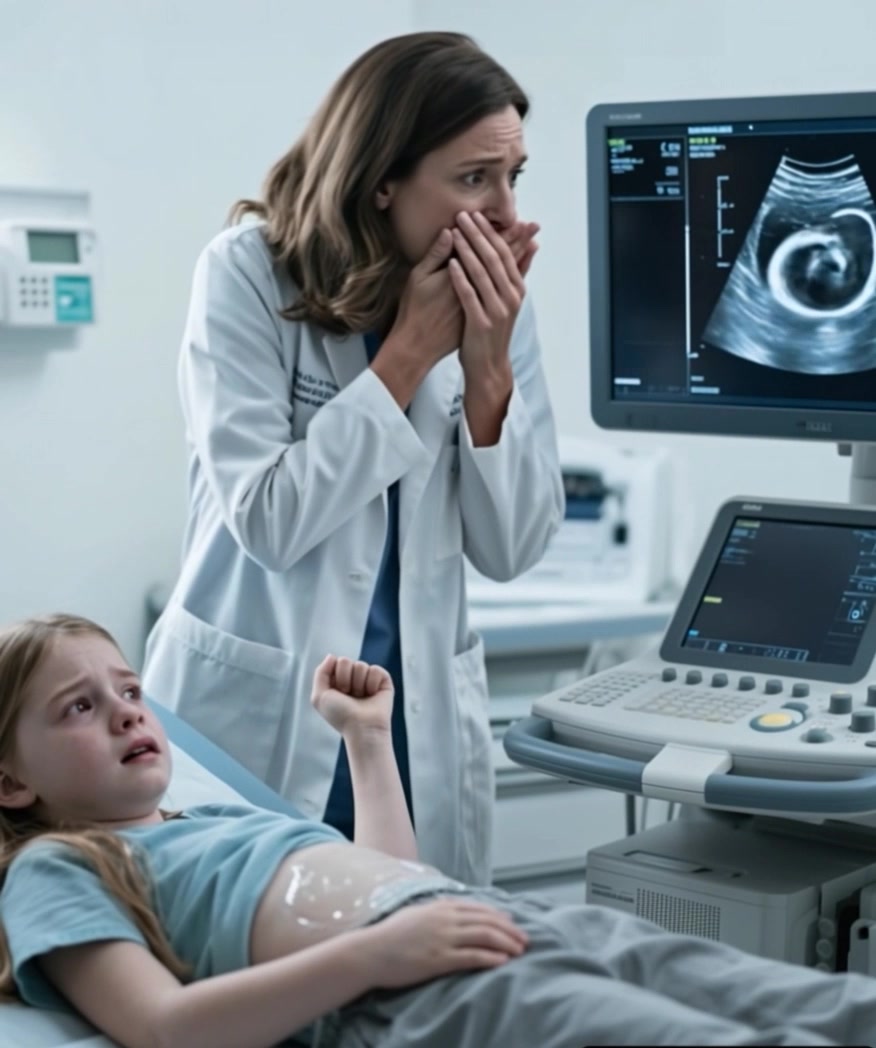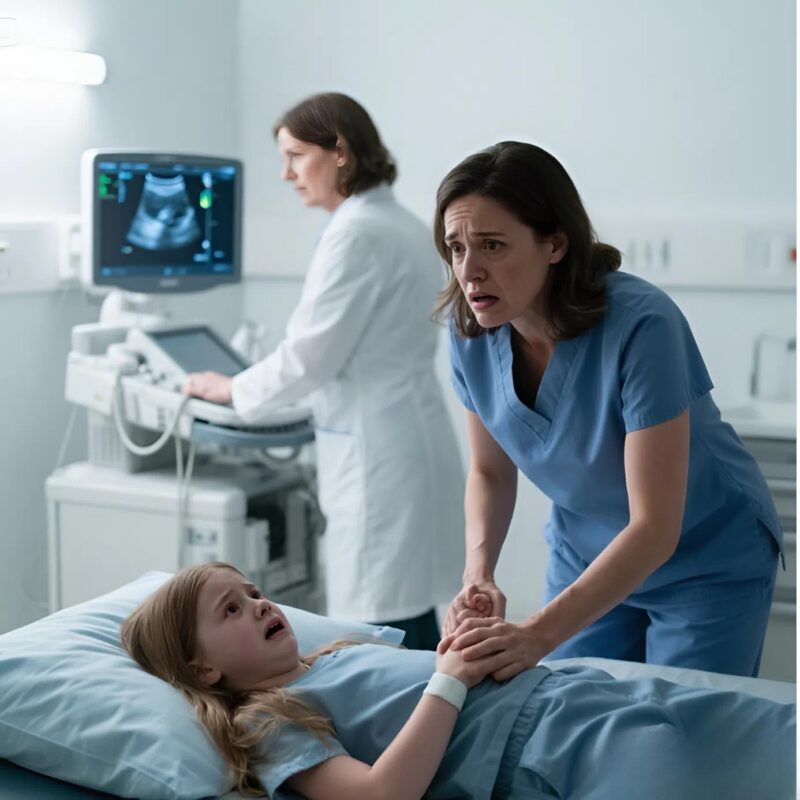Every mother knows that gut feeling—the one that whispers, something isn’t quite right. For Clara, that feeling came early on a Monday morning. She was in the kitchen, making breakfast before school, when she saw her daughter, Anna, age eight, sitting at the table. The bright light of morning, usually warm and familiar, seemed harsh that day. Anna was pale. She clasped her stomach and looked up at her mother, her voice weak: “Mom… it still hurts.”

Clara’s heart clenched. They talked. Anna told her that the pain began Saturday night, after spending the weekend with Lucas—her stepfather—while Clara worked. She had mentioned it to Lucas, but he brushed it off, saying it was probably just the pizza. Clara had trusted him to care for Anna—but now, seeing her daughter so clearly suffering, she knew something more serious might be going on.
Worry washed over Clara as she drove Anna to their trusted pediatrician—someone who had seen Anna since infancy. When the doctor examined Anna, he was thorough. He looked beyond the typical explanations: maybe a stomach bug, maybe something she ate. But something in Anna’s symptoms made him decide to order an ultrasound “just in case.” Clara sat in the examination room, holding onto hope, trying to calm herself, trying to calm Anna.
When the ultrasound images came up, the room changed. Clara noticed the doctor’s calm face falter; he exchanged a grave look with his assistant. She held her breath. The doctor asked Clara to stay put, picked up the phone, and said, with urgency: “We need an ambulance for an eight-year-old.”
Fear surged through Clara as she glanced at Anna, lying there, frightened. She wondered: what could have really happened while she was gone this weekend?
Within minutes, emergency responders arrived. Clara watched as they gently but efficiently assessed Anna, prepping her for transport. Her mind raced with possibilities. Was it food poisoning? A stomach infection? An allergic reaction?

The answer turned out to be something no one had expected: a small object. Likely part of a toy that Anna had swallowed—something missed by everyone, even Anna herself.
Because of the quick thinking by the pediatrician and rapid interventions by emergency staff, they were able to act before things got worse. Anna was treated without delay. For several hours after, she was kept under observation. Her pain lessened. Her color returned. Little by little, her breathing eased. By evening, Anna was stable.
Clara stood by, emotions mixed—relief, gratitude, still a bit of shock. She thanked every person in the hospital: the receptionist, the nurse, the tech who operated the ultrasound machine, the ambulance crew. She thought about how quickly life can shift in a moment. How trust and love mix with worry.
By the next day, Anna was home. Clara stayed close, watching every sign: eating, sleeping, smiling. The silence that had been heavy was lifting. Clara vowed to pay attention to the small things now—what Anna says, where she plays, what toys she puts in her mouth.
She also reflected on trust. Lucas—stepdad—meant well, she believed. And sometimes, when children complain, adults try to explain things away: “It’s nothing,” “Probably just that slice of pizza.” But Clara saw now how dangerous dismissal can be. How important it is to listen, even when it seems small.
For women in their 50s—mothers, grandmothers, caregivers—stories like this hit home. We remember those moments: the cold hand clutching our own heart when a child says, “Mom, it hurts.” We remember wanting to believe everything is fine, hoping for simple explanations. And sometimes, that hope is enough. But other times… it isn’t.
In remembering this story, I hope you’ll carry two things with you: first, the power of listening. When a child says something hurts, believe them enough to check. Second, the value of swift action. A doctor who notices, a test that confirms, people who move fast—these are often the difference between fear and healing.
This isn’t about blame or guilt. It’s about attentiveness. It’s about love. It’s knowing that sometimes, over a weekend away, or during a moment we can’t be everywhere, unexpected things happen. And in those moments, our role is simple: stay attentive, respond with urgency, love without hesitation.
Anna’s story ended with relief. And yes, gratitude. But behind it all is a reminder that motherhood—or caregiving at any age—isn’t measured by perfection. It’s measured by the truth we choose to act on. When we trust our instincts. When we speak up. When we don’t let dismissal win.





